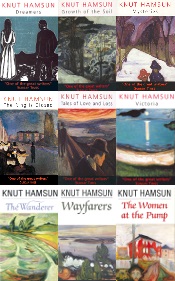As it’s #translationthurs we thought we would give you a special treat. Take a look at some hot picks of literature in translation from Souvenir Press: The Testament by Elie Wiesel, translated from the French by his wife Marion Wiesel; Pablo Neruda’s Isla Negra, a bi-lingual edition translated from the Spanish by Alastair Reid; and Dreamers by Knut Hamsun, translated from the Norwegian by Tom Geddes.
All three authors are Nobel Prize Winners – Neruda and Hamsun were awarded the Nobel Prize for Literature in 1971 and 1920 respectively, and in 1986 Elie Wiesel was awarded the Nobel Peace Prize.
The Testament, translated by Marion Wiesel, is an encompassing history of the twentieth-century. Paltiel Kossover, a “mute poet” and witness to history, travels from his Jewish childhood in pre-revolutionary Russia to Paris and Berlin in the 1930s as the Nazis take power, and then to Spain during its Civil War. He embraces Communism and returns to Russia, only to be imprisoned. In his cell he writes his ‘testament’ – a long letter to the son he will never see again, an account of his life as a man “who lived a Communist and died a Jew”.
In The Testament Wiesel pays tribute to the many writers killed by Stalin, and in Paltiel he has created one of the great Everyman characters of contemporary literature.
Souvenir Press revived Elie Wiesel’s lost classic in its acclaimed Independent Voices series, dedicated to publishing writers who provide alternative viewpoints and challenge conventional wisdom, making available work that has been unavailable in the UK although it is as relevant today as on its original publication.
 Isla Negra by Pablo Neruda contains more than a hundred poems that together make up Neruda’s poetic autobiography, exploring his landscape, his roots, and his experiences in an attempt to unify the various “lives” he had left behind in the span of his writing career. Written from the vantage point of Isla Negra, the small village on the Pacific coast of Chile which he came to regard as the centre of his world, the book reads like a series of notes which link past and present, and is perhaps the most revealing of all his collections.This collection moves from childhood impressions and awakenings through his early loves, travels and the dawning of his political awareness to self-scrutiny and self-definition.
Isla Negra by Pablo Neruda contains more than a hundred poems that together make up Neruda’s poetic autobiography, exploring his landscape, his roots, and his experiences in an attempt to unify the various “lives” he had left behind in the span of his writing career. Written from the vantage point of Isla Negra, the small village on the Pacific coast of Chile which he came to regard as the centre of his world, the book reads like a series of notes which link past and present, and is perhaps the most revealing of all his collections.This collection moves from childhood impressions and awakenings through his early loves, travels and the dawning of his political awareness to self-scrutiny and self-definition.
This bi-lingual edition contains both Neruda’s Spanish originals and Alastair Reid’s English translations. Souvenir Press also publishes Memoirs, Fully Empowered and Residence on Earth by Pablo Neruda.
 Dreamers by Knut Hamsun is one of nine books by Hamsun published by Souvenir Press. All nine books are available in eye-catching, uniform editions with cover artwork featuring the paintings of Edvard Munch.
Dreamers by Knut Hamsun is one of nine books by Hamsun published by Souvenir Press. All nine books are available in eye-catching, uniform editions with cover artwork featuring the paintings of Edvard Munch.
In this delightful comedy, Ove Rolandsen, the telegraph operator in an isolated fishing village in northern Norway, is a man of sudden passions, a cheerful rogue fond of girls and alcohol. He constantly hatches ambitious schemes to the despair of his fiancée, Marie, housekeeper at the vicarage.
When a plan to manufacture glue from fish waste lands him in trouble, is his feckless career over or could fortune, for once, be on his side?
Knut Hamsun is recognised as one of the greatest literary figures of the twentieth century, so be sure to take a look at our website for the full selection of Knut Hamsun titles.
What are you reading this #translationthurs?



